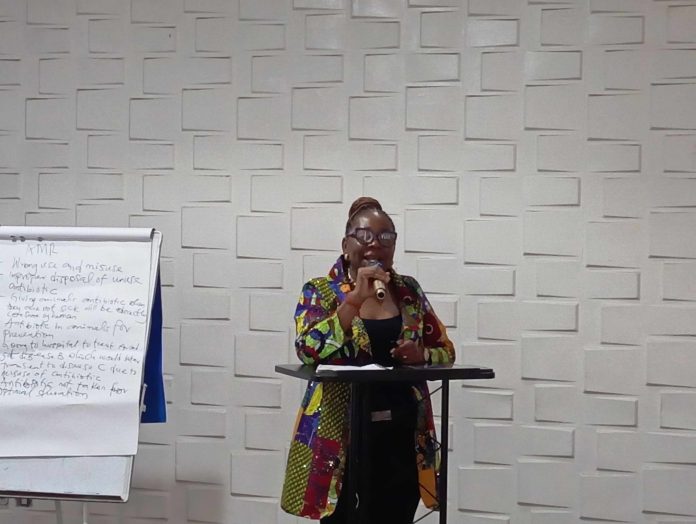***If Unchecked, Could Led To 10 Million Deaths Annually By 2050
*** AMR Responsible For 263,400 Deaths Annually in Nigeria
*** With 64,500 Of These Fatalities Directly Caused By Resistant Infections
Nigeria is on the brink of a public health catastrophe as Antimicrobial Resistance (AMR) continues to escalate, placing the nation among the worst-hit globally.
Dr. Mary Alex-Wele, Consultant Clinical Microbiologist, Senior Lecturer, and Certified Infection Preventionist, has raised concerns over the country’s AMR-related mortality rate, ranking 19th out of 204 nations surveyed at a 5 Day Training and Capacity Building for journalists and SBOS on AMR Advocacy And Media Reporting organized by Fleming Fund Country Grant Antimicrobial Resistance Phase 11 in collaboration with Management Science for Health (MSH) with support from UKaid on Monday in Lagos state.
Globally, 4.95 million deaths are linked to AMR each year, with 1.27 million directly attributed to drug-resistant infections. “If this trend continues unchecked, we could see up to 10 million deaths annually by 2050,” Dr. Alex-Wele cautioned.
In Nigeria, AMR is responsible for 263,400 deaths annually, with 64,500 of these fatalities directly caused by resistant infections. Beyond the staggering human toll, AMR is expected to trigger economic losses amounting to $100 trillion globally, with a projected 3.8% GDP decline and severe disruptions in livestock production.
Dr. Alex-Wele emphasized the urgent need for stronger policies, increased research funding, and widespread public awareness campaigns. “Without immediate and sustained intervention, we are heading toward a post-antibiotic era where common infections become untreatable, reversing decades of medical progress,” she warned.
She highlighted the necessity of a coordinated response, advocating for the “One Health” approach a framework integrating human health, food production, environmental sustainability, and animal health.
“AMR is not a future threat; it is a present danger. Governments, industries, and communities must work together to safeguard our future,” stated Dr. Chavan Laxmikant, Technical Officer at WHO Nigeria.
The Interagency Coordination Group on AMR outlined key recommendations, including accelerating national response strategies, fostering innovation, enhancing collaboration, and strengthening global accountability. These measures are expected to mitigate the crisis and protect public health.
Recent health data positions AMR among the leading causes of death in Nigeria, surpassing fatalities from respiratory infections, enteric infections, maternal and neonatal disorders, and neglected tropical diseases. While diseases like tuberculosis and malaria remain major concerns, AMR’s silent rise has alarmed healthcare professionals.
AMR occurs when bacteria, viruses, fungi, and parasites evolve resistance to antibiotics and other antimicrobial drugs, rendering standard treatments ineffective. This results in prolonged illnesses, higher healthcare costs, and increased mortality rates. The WHO has repeatedly warned that without urgent intervention, AMR could become the world’s leading cause of death.
The unchecked rise of AMR poses several threats: Increased morbidity and mortality; Longer hospital stays: Overburdening an already strained healthcare system; Costlier treatments: The need for more expensive antibiotics and procedures; Higher risk of resistant hospital-acquired infections; Complications in surgeries and routine medical treatments; and Financial losses in agriculture due to drug-resistant livestock diseases
In response to this crisis, Nigeria has developed two National Action Plans (NAPs) in the past eight years, aligned with the Global Action Plan on AMR. The latest, NAP 2.0, launched on October 18, 2024, will guide the country’s AMR mitigation efforts until 2028.
This plan, rooted in a multisectoral situation analysis, aims to: Strengthen surveillance and data collection; Promote responsible antibiotic use; Enhance infection prevention and control measures; Invest in research and development for alternative treatments; and Improve public education on AMR risks
As AMR continues to claim lives, immediate and sustained efforts are crucial to preventing a full-scale health crisis. The battle against AMR is not just for healthcare professionals but for every Nigerian, as inaction could have catastrophic
consequences for future generations.

